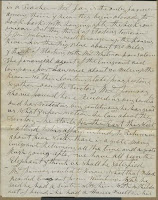 Back in 1997 the Texas Legislature passed what was felt at the time to be a sweeping new, 50-year, water planning and management law. It divided the state into 16 multi-County, Regional Water Planning Groups (RWPG) whose responsibility it was to coordinate all the stakeholders and make recommendations to the state on what their region's desired future conditions (DFC) should be 50 years out. The RWPGs had until September 1, 2010 to set DFC's. According to one account:
Back in 1997 the Texas Legislature passed what was felt at the time to be a sweeping new, 50-year, water planning and management law. It divided the state into 16 multi-County, Regional Water Planning Groups (RWPG) whose responsibility it was to coordinate all the stakeholders and make recommendations to the state on what their region's desired future conditions (DFC) should be 50 years out. The RWPGs had until September 1, 2010 to set DFC's. According to one account:"It's done," said Robert Mace, the deputy executive administrator of the Texas Water Development Board, the state's water development planning group, in an interview Monday afternoon. He had just received word that the last of the state's groundwater management areas had adopted 50-year plans... But for Mace and his agency the groundwater-planning process is not nearly done. Over the next six months, they will study the paperwork from the management areas around Texas and confirm that the 50-year goals, called "desired future conditions," are physically possible. The board will then send back information to regional planners about how much water they can draw annually from the aquifers around Texas to meet 50-year goals. Local officials then may adjust their water-use permitting requirements for cities and farmers based on those amounts.
Hummm. The state is to study the RWPG recommendations and see if they are physically possible. I wish I knew what actual guidance there was in the law regarding the legislative DFC expectations, because this description would support actual DFC ranges all the way from extremely aggressive to absurdly passive - any of which can be physically possible. I don't believe this can be the case, but who'd otherwise know?
The article also says the state will send back information on how much water they can draw annually from the aquifers to meet their 50-year goals. What if this state-determined amount is less than what is being currently withdrawn? Those wrting on the law have already interpreted it as not affecting current water rights or contracts, so I don't think this is a possible outcome, but you'd never know it from the writing. And the bigger question is: What if this scenario really was the DFC of that group? Should it be allowed?
And then there is the state website that bullets the steps in preparing the plans. It includes a specific task to develop a plan containing "..Identified needs with no feasible solutions". What kind of a plan implies future limits and then allows the planners to identify and account for future needs for which there are no solutions? Would identifying such needs make the future limitations more severe? or force the state to increase their annual allotments as a solution? Lots of possibilities as usual.


